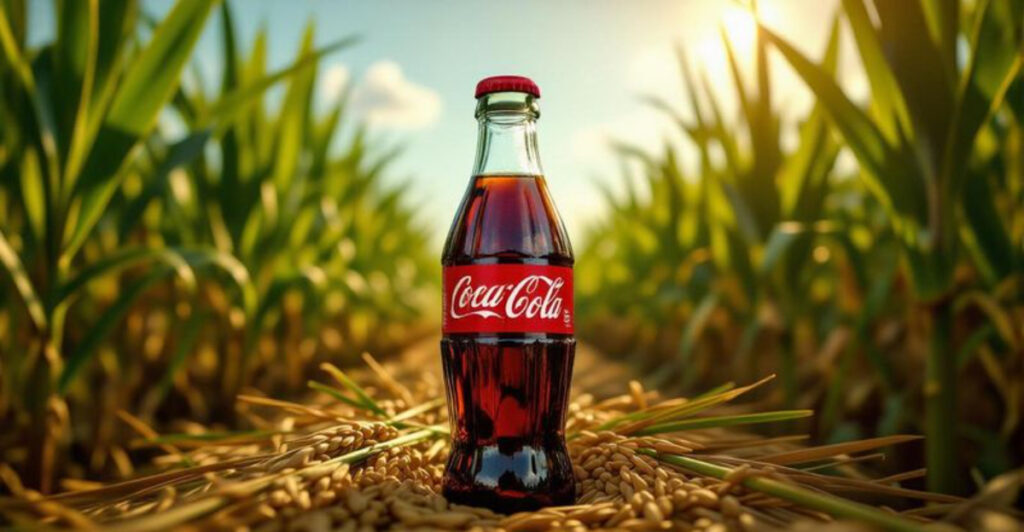Coca-Cola is making a big change this fall by launching a new version of Coke made with cane sugar instead of corn syrup. This move comes after former President Trump suggested the company should use sugar in their drinks. While the classic Coke we know isn’t going away, this new option gives customers more choices and responds to growing interest in more natural ingredients.
Political Pressure Sparks Change
President Trump’s public statement last week claimed Coca-Cola would switch to sugar, creating immediate ripples through both political and business circles. The announcement caught many by surprise, especially corn industry representatives who feared economic fallout.
Coca-Cola’s actual plan turned out more nuanced than Trump suggested. Rather than completely abandoning high fructose corn syrup, they’re adding a sugar-sweetened option while keeping traditional formulations available.
This strategic compromise allows the company to respond to political pressures without alienating established suppliers or disrupting their core business model.
American Sugar Sourcing Strategy
Coca-Cola specifically highlighted that the new product will use U.S.-grown cane sugar, a detail that carries significant economic implications. Florida and Louisiana, the nation’s leading cane sugar producers, stand to benefit considerably from this initiative.
Both states maintain strong political connections to Trump’s base, raising questions about whether this business decision carries underlying political motivations. The domestic sourcing approach aligns with broader “America First” economic messaging.
For consumers, the “Made with American Sugar” angle may resonate with those seeking to support domestic agriculture and manufacturing.
Consumer Health Trends Drive Innovation
The cane sugar version arrives amid growing consumer skepticism about processed ingredients like high fructose corn syrup. Many Americans already seek out Mexican Coke specifically for its cane sugar formula, believing it tastes better or offers health advantages.
This perception aligns with the “Make America Healthy Again” initiative championed by Health Secretary Robert F. Kennedy Jr. His campaign targets artificial ingredients and highly processed foods as public health concerns.
While scientific debate continues about whether cane sugar truly offers health benefits over corn syrup, Coca-Cola recognizes the market opportunity in catering to these consumer beliefs.
Economic Balancing Act
Corn industry representatives voiced immediate concern following Trump’s initial announcement. Their worry? A wholesale switch from corn syrup could devastate Midwestern farming communities and processing facilities dependent on the ingredient.
Coca-Cola’s compromise approach – offering both versions rather than replacing existing products – represents a careful economic balancing act. The corn industry maintains its substantial business relationship while sugar producers gain new opportunities.
This dual-ingredient strategy reflects the complex supply chain realities facing major food manufacturers who must navigate competing agricultural interests.
Nostalgic Marketing Potential
Remember those glass bottles of Coke your grandparents talked about? The new cane sugar version taps directly into powerful nostalgia marketing opportunities. Many older Americans recall when all Coca-Cola contained cane sugar before the 1980s switch to corn syrup.
The company already sees this effect with “Mexican Coke” and seasonal “Passover Coke” – both made with real sugar and commanding premium prices despite identical branding. Consumers actively seek these versions, creating an existing proof-of-concept.
Expect marketing that evokes vintage Americana while positioning the product as both traditional and premium.
Financial Implications Amid Global Challenges
Coca-Cola’s sugar announcement coincides with impressive quarterly results – the company reported stronger-than-expected revenue despite facing significant global challenges. Rising aluminum costs from new 50% tariffs threaten packaging expenses, while inflation pressures margins across operations.
The timing suggests confidence in premium pricing potential for the sugar variant. Historically, sugar-sweetened versions command higher prices than standard formulations, potentially offsetting increased ingredient costs.
Wall Street analysts view the move positively, seeing portfolio diversification that addresses both premium and value segments while navigating complex political and economic pressures.



